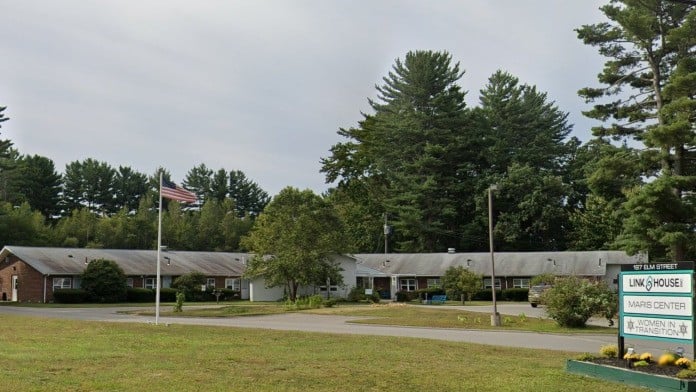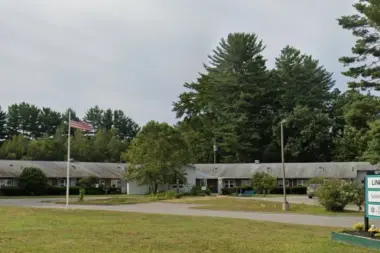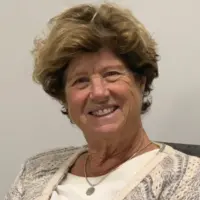About The Maris Center for Women
The Maris Center for Women is a residential recovery facility for women struggling with substance use issues in Salisbury, Massachusetts. This is a nondetox 40 bed residential facility. This makes the program suitable if you’ve completed detox or high intensity inpatient care. Those with moderate substance use issues who need a structured setting to build independent living skills can benefit from this program as well.
Addiction Recovery In Downtown Salisbury
Salisbury is a small coastal town in Essex County surrounded by local beaches. Its relaxed, coastal vibes make it an appealing setting for residential recovery. The facility is conveniently located on Elm Street, which is part of MA-110/MA-286. This ensures seamless access to or from the nearby cities of Newburyport and Amesbury. Folks from Seabrook in New Hampshire can drive to the location within six minutes via MA-286/US-1.
The facility is surrounded by Salisbury Beach State Reservation in the east, Seabrook Harbor in the north and Maudslay State Park in the southwest. These natural attractions lie within 3.5 to 6.5 miles away and offer a great chance for outdoor recreational activities. They’re also great spots for relaxation and sober reflection. Merrimack Valley Regional Transit Authority offers local bus service with stops nearby. This makes it easy for residents to attend essential appointments like outpatient therapy, medical care or court obligations while onsite.
The facility is also within walking distance of retail stores and restaurants like Pat’s Diner and Hungry Traveler Restaurant. This is helpful since you’ll be responsible for your meal while onsite. Since the program incorporates peer support meetings you may consider joining Salisbury AA Meeting and Amesbury NA Meeting. They’re super close to the location.
Empowering Women Through Recovery
The facility offers safe, supportive and stable housing where healing can occur and women are empowered towards a healthier lifestyle free from drugs. They boast double occupancy rooms, a shared kitchen and living rooms. There’s also a laundry room, shared restrooms and an outdoor recreational area. You must agree to adhere to the rules guiding the program to be accepted. This includes abstinence from all substance misuse and active participation in peer support meetings and therapies.
You’ll attend daily focused groups and self help meetings to address personal struggles, gain new coping skills and build a strong support system for recovery while onsite. Treatment is tailored to your unique recovery needs via personalized care planning. You’re encouraged to fully integrate into the community by securing stable employment, volunteering or engaging in local activities. This may involve working at a local store, volunteering at shelters or joining local clubs. This helps you build connections, develop a sense of purpose and foster independence as you transition to a substance-free life.
You’re expected to take active roles in the daily upkeep and functioning of the center. The program staff provides round the clock support and guidance to make your recovery journey easier. You’ll also benefit from the support of peers who are going through the same thing and will provide encouragement as necessary. It’s not all about therapy, though. You’ll have time to engage in social and recreational activities and have fun in recovery.
The program lasts for a minimum of three months but you can stay for an extended period of up to two years, depending on your unique recovery needs. Ongoing case management is an integral component of the program. Your case manager can help you secure affordable housing, job placement and access to medical care via linkage to community resources. They can assist you in enrolling in healthcare programs as well.
Facility Overview
Latest Reviews
Rehab Score
Gallery


Other Forms of Payment
Private insurance refers to any kind of healthcare coverage that isn't from the state or federal government. This includes individual and family plans offered by an employer or purchased from the Insurance Marketplace. Every plan will have different requirements and out of pocket costs so be sure to get the full details before you start treatment.
Self-pay involves paying for treatment out of your own pocket. You can use savings or credit, get a personal loan, or receive help from family and friends to fund your treatment. If you don't have insurance or your insurance plan doesn't cover a specific program, self-pay can help ensure you still get the care you need.
Medicaid is a state based program that helps lower-income individuals and families pay for healthcare. Medicaid covers addiction treatment so those enrolled can use their coverage to pay for rehab. When a program accepts Medicaid the client often pays very little or nothing out of their own pocket.
Financial aid can take many forms. Centers may have grants or scholarships available to clients who meet eligibility requirements. Programs that receive SAMHSA grants may have financial aid available for those who need treatment as well. Grants and scholarships can help you pai for treatment without having to repay.
Addiction Treatments
Levels of Care
Residential treatment programs are those that offer housing and meals in addition to substance abuse treatment. Rehab facilities that offer residential treatment allow patients to focus solely on recovery, in an environment totally separate from their lives. Some rehab centers specialize in short-term residential treatment (a few days to a week or two), while others solely provide treatment on a long-term basis (several weeks to months). Some offer both, and tailor treatment to the patient's individual requirements.
Rehab aftercare programs offer customized, wraparound support for clients in the maintenance phase of recovery. Many clients enroll in drug rehab immediately after completing intensive inpatient or residential care. Services encompass outpatient treatment but often extend long beyond the completion of a formal recovery program and typically include a variety of medical, mental health, and social service programs. Peer coaching, relapse prevention, 12 step program induction, and related services are commonly available.
12-step programs are addiction recovery models based on Alcoholics Anonymous (AA). A number of substance abuse programs (including some drug and alcohol rehab centers) use the 12 steps as a basis for treatment. Beginning steps involve admitting powerlessness over the addiction and creating a spiritual basis for recovery. Middle steps including making direct amends to those who've been hurt by the addiction, and the final step is to assist others in addiction recovery in the same way. 12-Step offshoots including Narcotics Anonymous (NA), Cocaine Anonymous (CA), Dual Recovery Anonymous (DRA), Sex and Love Addicts Anonymous (SLAA) and Gamblers Anonymous (GA).
Due to various health issues that substance abuse causes, 24-hour clinical care in Massachusetts is often a necessary part of treatment. Individuals may be suffering from infections, illness, or organ damage. Having 24-hour care available ensures that these physical problems are treated along with the psychological effects of addiction. Once individuals complete detox and are medically stable, this intensive level of supervision ends, and the next phase of treatment can begin.
Treatments
The goal of treatment for alcoholism is abstinence. Those with poor social support, poor motivation, or psychiatric disorders tend to relapse within a few years of treatment. For these people, success is measured by longer periods of abstinence, reduced use of alcohol, better health, and improved social functioning. Recovery and Maintenance are usually based on 12 step programs and AA meetings.
Addiction is a highly complex problem, and drug rehab in Massachusetts is often necessary to address it. These programs treat physical, mental, and relational issues that are involved. Treatment empowers individuals to manage these issues without the use of drugs.
Opioid rehabs specialize in supporting those recovering from opioid addiction. They treat those suffering from addiction to illegal opioids like heroin, as well as prescription drugs like oxycodone. These centers typically combine both physical as well as mental and emotional support to help stop addiction. Physical support often includes medical detox and subsequent medical support (including medication), and mental support includes in-depth therapy to address the underlying causes of addiction.
Substance rehabs focus on helping individuals recover from substance abuse, including alcohol and drug addiction (both illegal and prescription drugs). They often include the opportunity to engage in both individual as well as group therapy.
Programs
Adult rehab programs include therapies tailored to each client's specific needs, goals, and recovery progress. They are tailored to the specific challenges adult clients may face, including family and work pressures and commitments. From inpatient and residential treatment to various levels of outpatient services, there are many options available. Some facilities also help adults work through co-occurring conditions, like anxiety, that can accompany addiction.
Rehabs for women provide a safe, nurturing space for female clients to heal. These treatment programs consider the specific obstacles that women can face during recovery and place a special emphasis on mental, social, physical, and reproductive health. They explore how each woman's experience has shaped the trajectory of their substance use, addressing issues such as sexual abuse and past trauma.
Clinical Services
During cognitive behavioral therapy in Massachusetts, clients work with a trained counselor to identify negative thinking patterns and change them. This change in thinking has been shown to lead to changes in behavior to treat substance use and mental health disorders effectively.
If you are experiencing intense, negative emotions, dialectical behavior therapy can help you learn how to regulate painful emotions and manage the interpersonal situations that generate them. This method is often used during substance use treatment in Massachusetts to help you develop better coping skills and avoid relapse.
Group therapy is any therapeutic work that happens in a group (not one-on-one). There are a number of different group therapy modalities, including support groups, experiential therapy, psycho-education, and more. Group therapy involves treatment as well as processing interaction between group members.
In individual therapy, a patient meets one-on-one with a trained psychologist or counselor. Therapy is a pivotal part of effective substance abuse treatment, as it often covers root causes of addiction, including challenges faced by the patient in their social, family, and work/school life.
Trauma therapy addresses the psychological impact of experiencing a traumatic event. You can also experience mental and emotional injury after witnessing a trauma. By identifying what triggers those responses and developing effective coping mechanisms, you can rebuild a sense of safety and trust in your environment.
Amenities
-
Residential Setting
Staff & Accreditations
Staff

Tyler Livermore
President, BOD

Marshall Jespersen
VP, BOD

Christine Turner
Executive Director

Krystle Brown
Director of Development
Accreditations

State Licenses are permits issued by government agencies that allow rehab organizations to conduct business legally within a certain geographical area. Typically, the kind of program a rehab facility offers, along with its physical location, determines which licenses are required to operate legally.
State License: Massachusetts
Contact Information
197 Elm Street
Salisbury, MA 01952